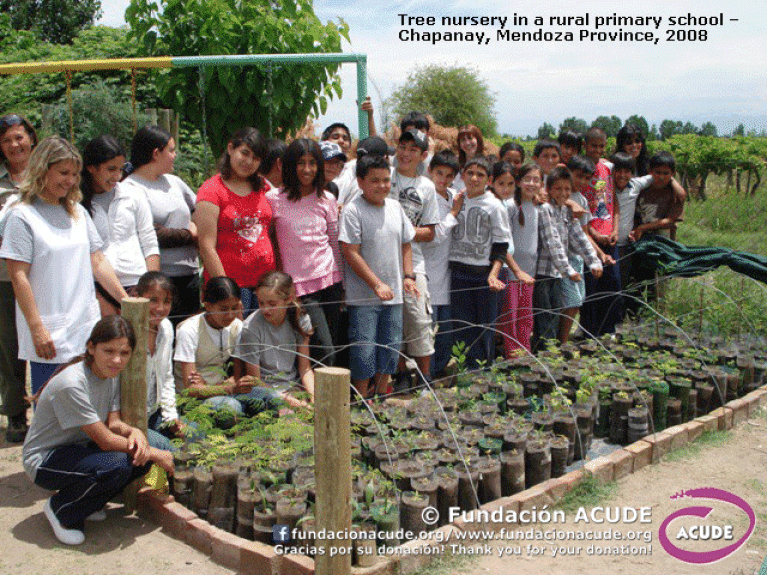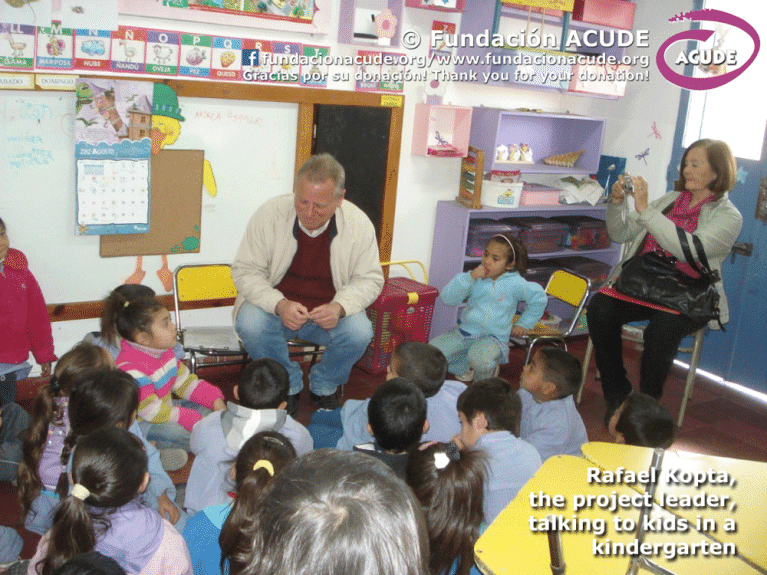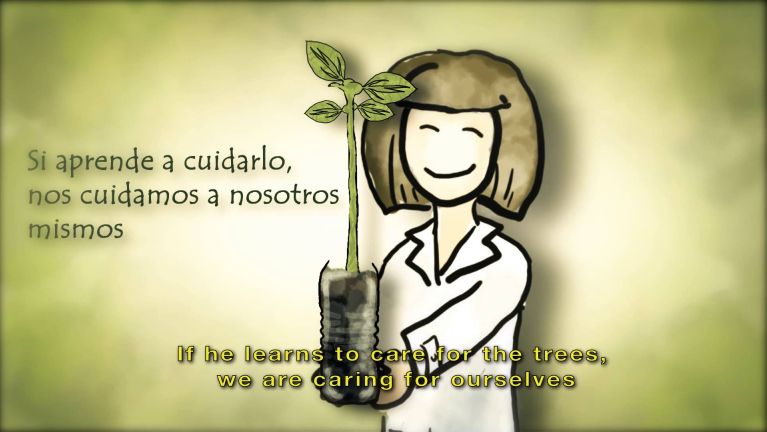Educar Forestando, Argentina
Educar Forestando helps to protect the environment and hinder climate change through educating children

Project name: Educar Forestando: Teaching kids to take care of the environment through education with trees
Project location: Córdoba, Argentina.
Educar Forestando was first implemented in Córdoba. In 1999-2000 it spread to the Province of Jujuy, located 1,500 km north of Córdoba; the Province of Mendoza, 700 km west of Córdoba; and in the Province of Rio Negro, 2,500 km southwest of Córdoba. In 2005, Educar Forestando was successfully expanded to the Province of Santiago del Estero.
Website: http://www.fundacionacude.org/
Facebook: https://www.facebook.com/fundacionacude.org/?fref=ts
Dieses YouTube-Video kann in einem neuen Tab abgespielt werden
YouTube öffnenInhalte Dritter
Wir verwenden YouTube, um Inhalte einzubetten, die möglicherweise Daten über deine Aktivitäten erfassen. Bitte überprüfe die Details und akzeptiere den Dienst, um diesen Inhalt anzuzeigen.
Einverständniserklärung öffnenProject description:
Educar Forestando helps to protect the environment and hinder climate change through educating children. It is the widest environmental education project in Argentina, managed by ACUDE Foundation.
Educar Forestando works in kindergartens, primary, secondary, and special schools. ACUDE runs a growing network of teachers, of which over 90% are women. Teachers are the key in strengthening the connection between children and nature. Children collect tree seeds and sow them in containers made out of domestic garbage materials, which are put into tree nurseries of 1x2 meters. The nurseries are built together with teachers, relatives and neighbors. The trees are planted in places where they benefit everyone. Thus the project engages the whole community.
ACUDE has created a fun, exciting and a concrete way of learning. Over the past 27 years the project has been replicated in five provinces in Argentina, more than 220.600 children have participated in the project from over 1000 schools and 500 communities, and over 513,000 trees have been produced. The results have shown that it can generate cultural and environmental change in a short time. The project has raised environmental awareness, changed local policies, and generated environmental debate in the communities. By using trees as educative instruments children create personal relationships with the trees comprehending that “If I take care of you now, you will take care of me later”.
Goal and purpose of the project:
The purpose of Educar Forestando is to develop and strengthen values that lead to environmental awareness and sustainable development. Educar Forestando changes harmful cultural trends on a large scale. Children learn to respect and to take care of the environment by producing and looking after trees. When a child sows a tree seed, it becomes a part of her/him. Every child who takes care of trees brings new hope for the planet.

Motivation of the applicant / applicant team:
Argentina is struggling with lack of environmental awareness, which has led to severe environmental and social problems. The misuse and mismanagement of natural resources generates increasing impoverishment, in biodiversity and in people. People’s attitudes towards the environment are initially created in childhood. By educating future parents and decision-makers, Educar Forestando wants to counteract the environmental issues. Some of the people who took part in the program in the 1990’s, are currently solving environmental and community issues.
Use of prize money:
ACUDE needs funding for going on with Educar Forestando: for training teachers and for providing more education materials for the schools. ACUDE would like to see Educar Forestando to grow furthermore in Argentina and beyond. Expanding is possible via an online platform that ACUDE is currently building. This requires resources. Replicating the program internationally would reach millions of children and encourage more and more communities to make a difference.
